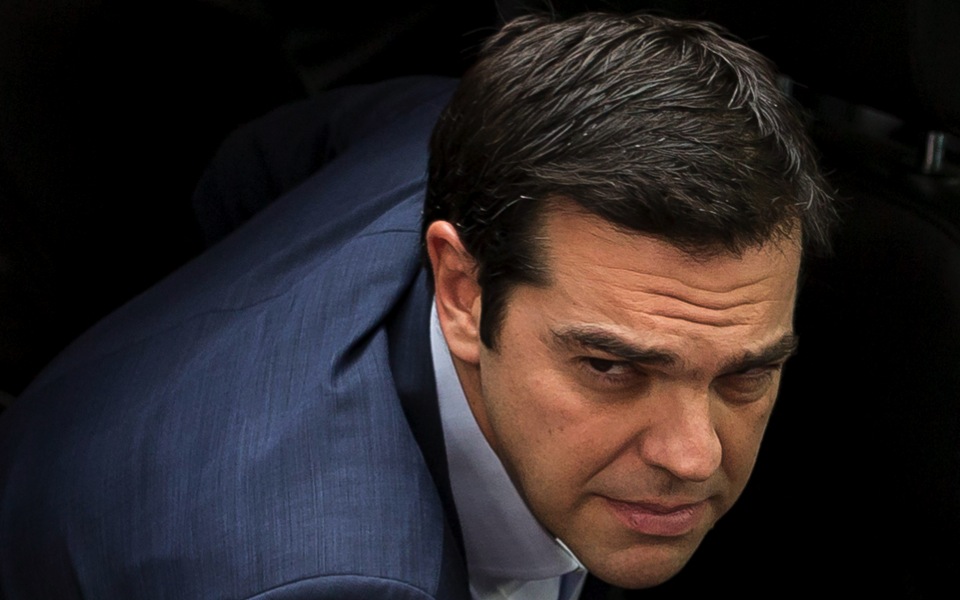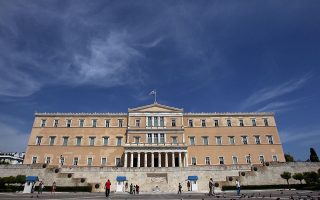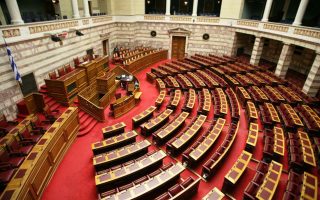Greek bailout vote to test SYRIZA party rebellion

Greece's leftist government urged disgruntled lawmakers on Wednesday to back reforms required for talks on a rescue deal to start, as Prime Minister Alexis Tsipras faced his second major test in parliament in a week.
A first set of reforms that focused largely on tax hikes and budget discipline triggered a rebellion in his party last week and passed only thanks to votes from pro-EU opposition parties.
The bill lawmakers will vote on late on Wednesday covers rules for dealing with failed banks and speeding up the justice system — two more conditions set by the euro zone and IMF to open negotiations on a 86 billion euro rescue loan.
The legislation is all but certain to pass, despite planned protests, after opposition parties said they would back it.
But with divisions in Tsipras' leftist SYRIZA party laid bare by last week's rebellion by 39 deputies, Wednesday's vote will be closely monitored to see if he loses even more support.
"We are making an effort to have fewer dissenters," Health Minister Panagiotis Kouroumplis told Greek television.
He said there were doubts about whether the new measures could pull the recession-hit economy out of its impasse. "But since we agreed, we must implement them."
The government hopes negotiations on the bailout deal can start this week and be wrapped up by Aug. 20.
"It's extremely important to wrap up this prior actions procedure so that we can start negotiations on Friday," Finance Minister Euclid Tsakalotos told lawmakers as they began debating the bill.
Together with his coalition partners from the right-wing nationalist Independent Greeks, Tsipras has 162 seats in the 300-seat parliament. But last week's rebellion cut his support to just 123 votes and government officials have said elections are likely in the autumn.
"Rendezvous in September," the pro-SYRIZA Avgi newspaper wrote on its front page, saying a party congress was likely then, with elections lurking in the background.
"Possibly, we will go to elections when this is needed," government spokeswoman Olga Gerovasili told Greek radio. "Right now, this won't be useful. It's more important that the country returns to a kind of normality," she said.
Tsipras himself has said he disagrees with the measures demanded by Greece's euro zone peers and other international creditors for talks to proceed on a third bailout to save the country from bankruptcy.
But after he made a U-turn by accepting a deal at the 11th hour to keep his country in the euro, he told party hardliners on Tuesday they, too, should face reality and back the package.
"Up until today I've seen reactions, I've read heroic statements but I haven't heard any alternative proposal," he told SYRIZA officials on Tuesday, warning that party hardliners could not ignore the desire of most Greeks to stay in the euro.
Protest rallies
In first signs of a return to normality, Greek banks reopened on Monday and Athens paid debts due to the European Central Bank and International Monetary Fund. On Tuesday, Standard & Poor's upgraded Greece's sovereign credit rating by two notches, saying the country's liquidity perspective has improved with bailout talks.
But fresh austerity measures are hard to accept in a country whose economy has contracted by a quarter during five years of crisis and where unemployment is more than 25 percent. The main public sector union ADEDY, the communist-affiliated party PAME and anti-establishment groups have called rallies for Wednesday.
"We will continue our battle so that the new barbaric bailout does not pass and is overturned," ADEDY said in a statement, urging Greeks to rally against "a neocolonial control" of the country by the EU and the IMF.
[Reuters]





